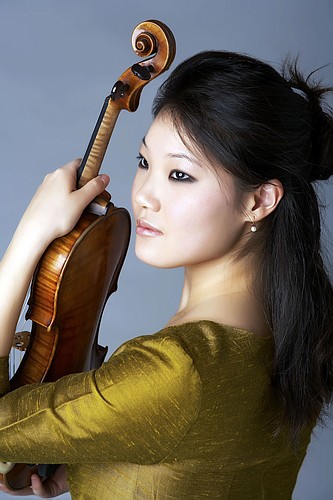- November 25, 2024
-
-
Loading

Loading

Classical music is a monolith of the culture. Often incorrectly discredited as old or boring, classical music concerts are supernovas of sound, composition and performance.
However, in classical music, change and innovation is often times measured by the centuries. And for fairly new and young dynamos, it takes a life of study, performance and effort to be considered a notable addition to the classical firmament among the marble busts of performers and composers of the past.
The Perlman Music Program/Suncoast is a laboratory and training ground for said burgeoning classical instrumentalists. With their annual winter residency intensive, educational outreach programs, concerts for emerging PMP alumni and a “Hear & Now” concert series, the Perlman Music Program/Suncoast strives to inspire and foster future generations as well as nurture that next great pool of talent.
On the inspiration side, the “Hear and Now” concert series showcases relatively young and new artists that have just established a name and foothold in the professional classical musical world. Violinist Rachel Lee Priday and pianist David Kaplan will perform at the first concert of this year’s “Hear & Now” series at 7 p.m. Thursday, Dec. 4, at the Sarasota Opera. Tickets are $30 to $40 as well as a reception with the artists following the concerts.
With pieces by such iconic composers like Ludwig van Beethoven, Robert Alexander Schumann, Albert Dietrich, Johannes Brahms and contemporary composers Matthew Aucoin and Marcos Balter on the set list, Priday and Kaplan will flex their classical and modern musical muscles. The concert will also display Priday and Kaplan’s necessary acumen of masterful expression and dedication that is required to succeed as a professional musician in today’s classical music scene.
It is a remarkable thing though to think that Priday and Kaplan are considered “young” and “up and coming” musicians even though by any civilian’s standards they are accomplished after spending their entire lives honing their musical prowess.
“It’s kind of strange to think about because I have been performing most of my life,” says Priday,” but in context I am fairly young and musicians are playing until they literally can’t play anymore.” Priday, 26, began her violin and music craving at the ripe, mature age of three. Inspired by here older, cello-playing brother and the children’s show “Lamb Chop’s Play-Along,” Priday asked for a violin on her birthday and quickly began taking lessons. Twenty-three years later and Priday still clings and maintains that childlike vigor and passion for violin and music.
“I’m always seeking a more beautiful way for a piece of music to be played,” says Priday, “and over the years you adapt, change and watch what you’re going after, but what I keep coming back to is that I just really love music.”
Kaplan's mother and father were both musicians in their own right. So when his musical skills flourished at a young age, Kaplan had a supportive and accessible outlet. "It took remarkably little imagination to begin to play piano," says Kaplan. "I was always drawn to it, and I don't remember I time in my life that I wasn't playing it."
In the contemporary world of classical music, with old and new works intermingling and influencing one another, there seems to be limitless possibilities. The concert's setlist is indicative of this veritable musical time machine with works side-by-side by composers dead and alive. "Teh repertoire is so vast and it's constantly growing," says Kaplan. "There is no excuse for boredom."